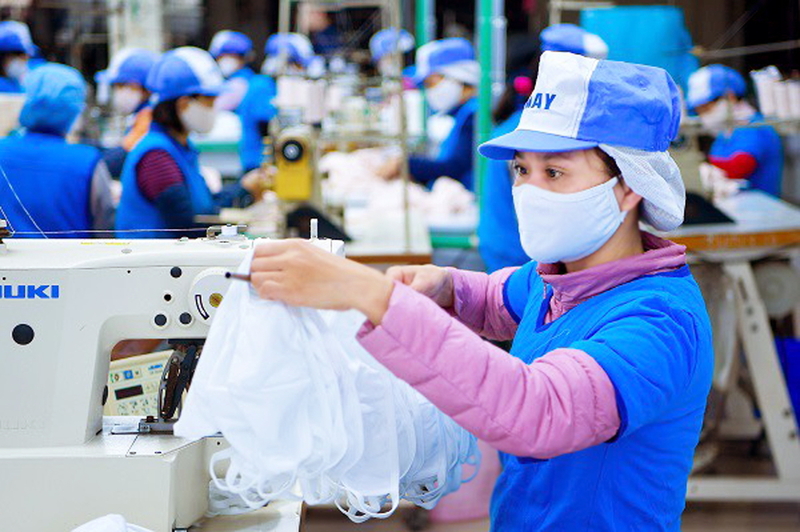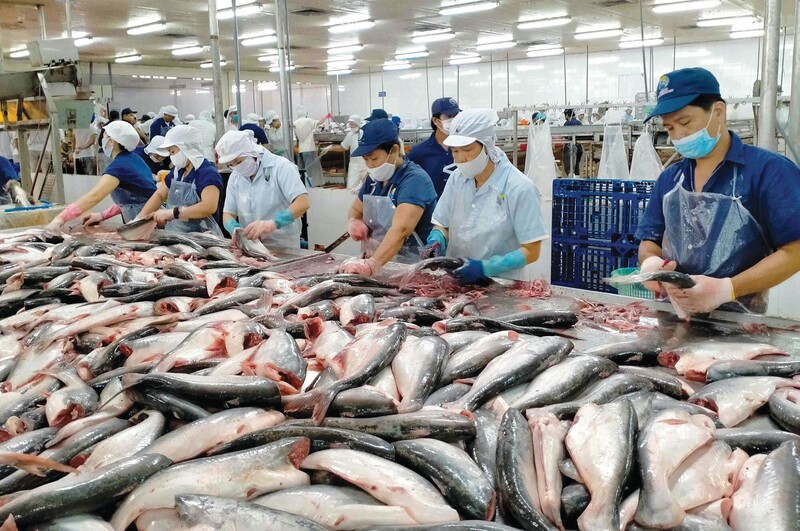
Vietnamese firms shift from OEM to D2C to boost national brands
19:05 | 23/03/2025 16:26 | 08/09/2025Trade
Ho Chi Minh City is actively implementing various policies and strategies to accelerate the development of its food processing industry, said Tran Phu Lu, Director of the City’s Investment and Trade Promotion Center.
In 2024, Ho Chi Minh City's economy continued its strong recovery and impressive growth. The City’s Gross Regional Domestic Product (GRDP) increased by an estimated 7.17% compared to 2023. All key sectors saw positive momentum: agriculture, forestry, and fisheries grew by 0.12%, industry and construction rose by 6.89%, and trade and services expanded by 7.70%. The City’s enterprises exported an estimated $46 billion worth of goods nationwide, marking an 8.3% increase, while imports reached $58.6 billion, up 5.9%.
Notably, the production index of Ho Chi Minh City's four key industries grew by 7.6%, with food processing recording a 1.5% increase. The City’s export market structure is shifting significantly toward countries and regions engaged in Free Trade Agreements (FTAs) with Vietnam, further boosting the competitiveness of local enterprises.
 |
| Ho Chi Minh City aims to develop a sustainable green food industry (Photo: https://daibieunhandan.vn) |
The food processing industry is expected to play a crucial role in driving Ho Chi Minh City’s and Vietnam’s economic growth, especially amid the global economic fluctuations anticipated in 2025, said Lu.
The Director also outlined the City’s strategic vision: “By 2050, Ho Chi Minh City aims to develop a food processing sector focused on key products that meet food safety standards, incorporate green practices, ensure traceability, and promote sustainability. The strategy also emphasizes product diversification to align with changing consumer behavior, brand building, and expanding both domestic and international markets.”
A critical factor in advancing the industry is the integration of cutting-edge technology into production processes, enhancing both product quality and operational efficiency. Green manufacturing and digital technology applications are emerging as dominant trends, paving the way for sustainable production models that conserve resources and minimize environmental impact.
However, to maintain sustainable growth and strengthen its international market position, Lu urges the City’s food processing sector to innovate and adopt global standards, such as Halal certification, to meet the demands of Islamic markets. Additionally, businesses must respond to evolving consumer preferences for organic, eco-friendly, and clean-label products.
Another key development is the increasing role of information technology in promotion and e-commerce. By leveraging big data, artificial intelligence, and digital platforms, businesses can enhance customer engagement, streamline operations, and integrate more effectively into global supply chains.

19:05 | 23/03/2025 16:26 | 08/09/2025Trade

19:05 | 23/03/2025 15:11 | 08/09/2025Support industries

19:05 | 23/03/2025 15:09 | 08/09/2025Foreign trade

19:05 | 23/03/2025 14:56 | 08/09/2025News and Events

19:05 | 23/03/2025 11:43 | 08/09/2025Energy